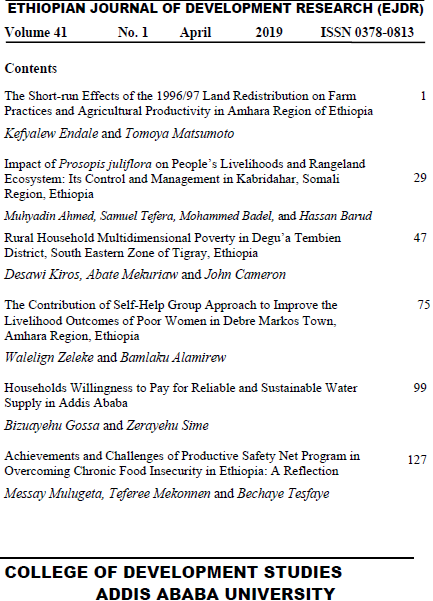The Contribution of Self-Help Group Approach to Improve the Livelihood Outcomes of Poor Women in Debre Markos Town, Amhara Region, Ethiopia
Keywords:
Self-Help Group, Women, Livelihood, Propensity score matching, Debre MarkosAbstract
Self-Help Group is one of the most important approaches that play a
significant role in improving the livelihood of women across the world.
Despite the fact that multitude of research prove the positive role of the
approach in improving the livelihoods of women across the world, its
contribution in Ethiopia is still not well understood. In addition, it is not yet
included in the policy agenda of the government. This might be because of
lack of concrete evidence about the issues. Therefore, this study was designed
to examine the impact of Self-Help Group approach on the livelihood
improvement of poor women in Ethiopia through the application of
comparative analysis based on 100 women members and 196 non-members.
Propensity Score Matching (PSM), a non-experimental research design
approach with mixed data analysis techniques, was used to examine the effect
of the approach on the livelihood of the beneficiaries. It was found that
beneficiaries had a higher score in income, consumption, saving, food
insecurity and access prevalence reduction, and, assets. It can be concluded
that the approach had a significant impact on women’s livelihood
improvement in Debre Markos town, Ethiopia. Based on the result, it is
recommended that greater emphasis should be given for Self-Help Group
approach on the livelihood improvement of marginalized community in
general and poor women in particular.
Downloads
Published
How to Cite
Issue
Section
License
Copyright (c) 2022 Walelign Zeleke, Bamlaku Alamirew

This work is licensed under a Creative Commons Attribution 4.0 International License.


